Archive for 2021
Congress Introduces New Restrictive Small Business Financing Bill
November 19, 2021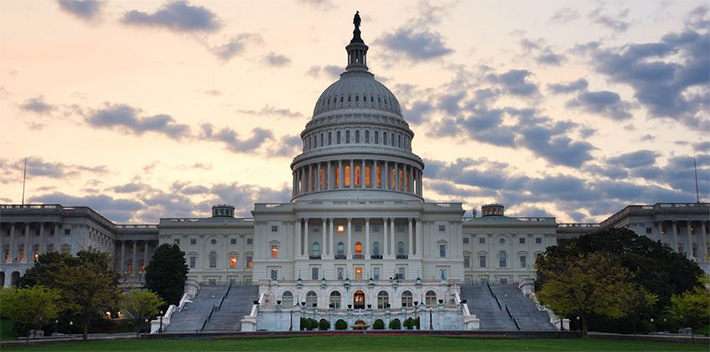 A new bill introduced by Rep. Nydia M. Velázquez, the Chairwoman of the House Small Business Committee, and Senator Robert Menendez (D-NJ), hopes to “stop predatory small business loans” by applying broad consumer protections to small business borrowers nationwide.
A new bill introduced by Rep. Nydia M. Velázquez, the Chairwoman of the House Small Business Committee, and Senator Robert Menendez (D-NJ), hopes to “stop predatory small business loans” by applying broad consumer protections to small business borrowers nationwide.
This would be done by including small businesses as a covered party under the already existing Truth in Lending Act (TILA).
The proposal, if successful, would arguably become more restrictive than New York’s recently passed commercial financing disclosure law.
Among the supporters of the bill are LendingClub and Funding Circle. No republican members of congress are listed among the sponsors in the official announcement.
The bill is similar to one introduced last year that failed to advance, the Small Business Lending Disclosure and Broker Regulation Act of 2020. That bill never made it out of the House Financial Services Committee. The makeup of Congress now, however, is different than it was last year.
So We Didn’t Buy The Constitution
November 18, 2021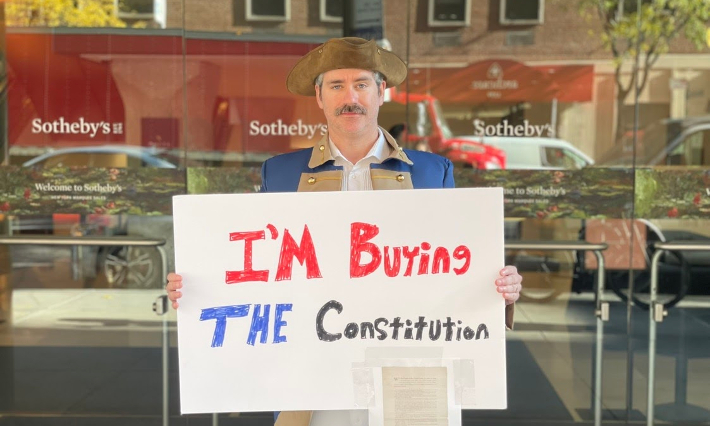 An internet movement started last week to buy one of the only remaining original copies of the United States Constitution reached a roaring climax on Thursday night and then descended into chaos and confusion as almost no one seemed to know what the outcome was, how auctions work, who was bidding on the movement’s behalf, or anything at all.
An internet movement started last week to buy one of the only remaining original copies of the United States Constitution reached a roaring climax on Thursday night and then descended into chaos and confusion as almost no one seemed to know what the outcome was, how auctions work, who was bidding on the movement’s behalf, or anything at all.
Several news outlets reported that the Decentralized Autonomous Organization, aka DAO (pronounced “Dow”), representing the internet movement, had won, including the crypto-focused outlet Coindesk. The DAO raised approximately $47 million via ethereum contributions in a matter of just days from a total of more than 17,437 people who joined in (yours truly included). Knowing that, most people were lured into believing that the winning bid of $43.2 million had to have been the DAO. Unfortunately, the contributors seemed largely unaware of the hefty fees charged on top by Sotheby’s, the 8.875% sales tax, and more. I wrote about this two days prior.
This snafu seems to have been expected by those skeptical of an internet movement. Having actually stood outside of Sotheby’s earlier in the day in full George Washington-esque garb, I was asked by someone seemingly connected to a bidder if the DAO was aware of the added fees. I told them what I knew, but I couldn’t speak in the affirmative for the other 17,436 people.
Having also crossed paths with Julian Weisser, however, a Core team member and nice fellow, it was clear that he was extremely knowledgeable about all the details involved. Weisser was also the first team member to officially announce the loss on the discord.
“@everyone – We did not win the bid for the copy of the U.S. constitution.
While this wasn’t the outcome we hoped for, we still made history tonight with ConstitutionDAO. This is the largest crowdfund for a physical object that we are aware of—crypto or fiat. We are so incredibly grateful to have done this together with you all and are still in shock that we even got this far.
Sotheby’s has never worked with a DAO community before. We broke records for the most money crowdfunded in less than 72 hours. We have educated an entire cohort of people around the world – from museum curators and art directors to our grandmothers asking us what eth is when they read about us in the news – about the possibilities of web3. And, on the flip side, many of you have learned about what it means to steward an asset like the U.S. constitution across museums and collections, or watched an art auction for the first time.
We had 17,437 donors, with a median donation size of $206.26. A significant percentage of these donations came from wallets that were initialized for the first time.
You will be able to get a refund of your pro rata amount (effectively minus gas fees) through Juicebox. Please expect more details from us about this tomorrow – our team has not slept in the past week, and we are giving people the night to get some rest before we’re back at it tomorrow AM.
Every one of you were a part of this. We want to also thank our partners in this work: Alameda Research, Endoament, FTX US, Juicebox, Morning Brew, and SyndicateDAO”
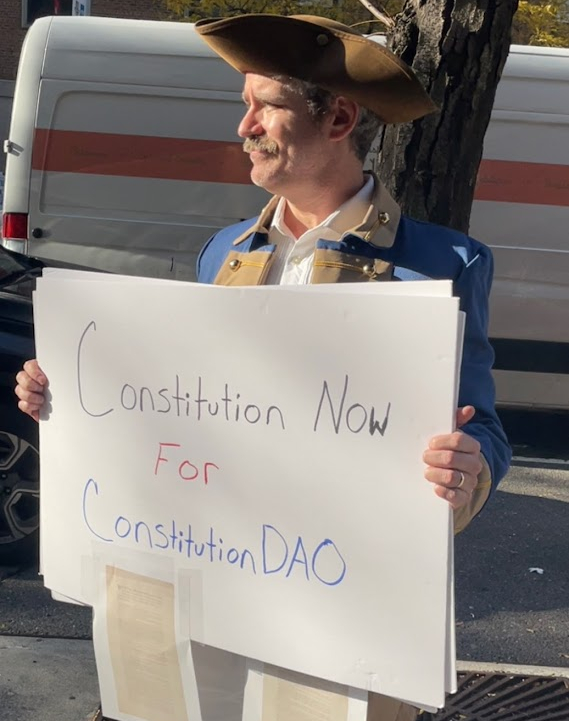 Once the results finally started to kick in, feelings were mixed. Discord members were torn between feeling completely bamboozled or excited to use a DAO to make some other kind of meaningful purchase. The leadership behind the organization’s official twitter account signed off for the night early after working around the clock for about a week to even put the entire thing together.
Once the results finally started to kick in, feelings were mixed. Discord members were torn between feeling completely bamboozled or excited to use a DAO to make some other kind of meaningful purchase. The leadership behind the organization’s official twitter account signed off for the night early after working around the clock for about a week to even put the entire thing together.
gn everyone we’ll be back tomorrow
thanks for all your love and support. can’t wait to shape the next leg of this journey with you all 🙂 🌙 📜 https://t.co/Vhtiglpntg
— ConstitutionDAO (📜, 📜) (@ConstitutionDAO) November 19, 2021
By any measure, the dollars involved were astounding. This particular copy of the Constitution last sold in 1988 for the price of $165,000. Sotheby’s pegged the current value at $15 – $20 million. With $47 million in hand, winning seemed a strong possibility. The one major problem, however, is that with the blockchain being a public ledger, the rival bidder already knew the DAO’s best bid.
Overall, it was a rather strange experience, no doubt made more unusual by my throwing down eth and then donning a costume on the Upper East Side of Manhattan to the bewilderment of many locals.
Was this ultimately a loss for crypto or still a win? Only time will tell…
They’re Actually Going to Buy the Constitution
November 17, 2021 It was Tuesday night in the ConstitutionDAO discord. Users posted the same questions that the mods had answered hundreds of times already.
It was Tuesday night in the ConstitutionDAO discord. Users posted the same questions that the mods had answered hundreds of times already.
“Wen constitution fren?” wrote apelord37.
Another begged the number to hit $6 million already just so they could go to sleep. It was a weak milestone. The earlier thresholds had been more exciting.
“A million, no two million, no THREE MILLION!” the crowd cheered on social media.
But the deadline to reach $20 million, the figure that the auction house had estimated on the high end of what a rare copy of the Constitution of the United States could sell for, was rapidly approaching.
$20 million would be a respectable bid, but it wouldn’t even guarantee a win, and besides that wouldn’t even account for the separate $5 million needed just for auction fees and sales tax. What the DAO really needed was $25 million just to be in the game.
Ouch.
With less than 48 hours to go, hope began to dissipate. A betting site pegged the odds of the DAO actually succeeding at 19%, a discouraging sign.
Just as the people began to pray that Elon Musk might ride in like a white knight, contributors to the DAO awoke Wednesday morning to find that someone had anonymously contributed 1,000 eth to the cause, the equivalent of more than $4 million.
“Holy sh**, this could actually happen,” $people said.
With renewed energy, the DAO reached $20 million by noon and was at $35 million at the time this story is being posted. All of the data is public. A review of it shows that there are more than 11,700 contributors. The top 20 contributors, however, account for more than half of all the funds raised.
On the ConstitutionDAO discord, confidence has surged.
“WAGMI,” one user wrote.
The questions have shifted to what happens if too much is raised and who is going to be hosting parties irl to watch the auction live.
Still others have begun to make other suggestions, like using excess funds for starving children. The crowd isn’t pleased by this, however.
“people, people, focus here, we have only set out to do one thing and that is We’re All Gonna Buy the Constitution,” a user writes.
What Works in Marketing Financial Products
November 17, 2021 Social media was at the top of the list for many marketers that deBanked spoke with, but there are certain formulas necessary to make it work, they say.
Social media was at the top of the list for many marketers that deBanked spoke with, but there are certain formulas necessary to make it work, they say.
“It’s coming up with new ways to say ‘we want to fund your deals,’” said Cassandra Lund, Social Media Manager at Lendini, when asked what the hardest part of her job is. Being heavily involved in the marketing campaigns of a large small business funding company, Lund believes social media is a prime place for setting up brand legitimacy.
“[Social media] provides something that even other forms of marketing cannot,” said Lund. “It instantly connects you to your audience and allows them to ask questions right away, either through direct message or as a comment.”
Fintech companies are also strategically using social media to start getting their name out there. Jennifer Marshall, Marketing Manager at fraud and dispute software provider Quavo, praised the power of social media; especially platforms that provide a professional environment for both consumers and businesses.
“We see the most results on LinkedIn,” said Marshall, “from both paid and organic efforts. “LinkedIn can take [businesses] a long way if their marketing team leverages tagging and mentioning [on the platform]. In the early stages of a company, when brand awareness is the top priority, [businesses] should leverage their employees’ LinkedIn networks.”
 While Marshall and Lund are marketing different financial products, they both agree on the inherent value of LinkedIn to their respective companies when it comes to a buttoned-up platform for connections and content.
While Marshall and Lund are marketing different financial products, they both agree on the inherent value of LinkedIn to their respective companies when it comes to a buttoned-up platform for connections and content.
“Just create a Linkedin and Instagram and start posting,” Lund said, when asked how a business could get their foot in the social media door. “You will find people in your industry, potential clients and information about what other businesses in your field are doing. Build out from there, and your business will thank you for it.”
With the opportunity social media provides comes responsibility, and some companies have let simple mistakes hurt the perception of their brand. Lund and Marshall both believe that a misguided or typo-littered social media presence can do a company more harm than good.
“Spelling errors and bad graphics, I see these [errors] a lot on social media as it becomes more and more important to small businesses,” said Lund. “There is nothing more important on social media than a first impression, and a spelling error or hugely pixelated photos is a major deterrent.”
Marshall stressed that companies not let “B2B vs B2C” marketing practices dictate their social media efforts. “In the end, you should want to reach people where they work and where they play. Once you understand that, the value of social media to all financial companies is crystal clear.”
 With new members of the work force living most of their lives ingrained in social media, it appears its value in the business world is exponential. “The younger generations have used it for years, or since being born, and it’s not going anywhere in the near future,” said Lund. “Finding new clients, new customers and like-minded business professionals on [social media] helps build your brand and stake a claim in the industry. Anyone that doesn’t think social media is important in business in general is missing out.”
With new members of the work force living most of their lives ingrained in social media, it appears its value in the business world is exponential. “The younger generations have used it for years, or since being born, and it’s not going anywhere in the near future,” said Lund. “Finding new clients, new customers and like-minded business professionals on [social media] helps build your brand and stake a claim in the industry. Anyone that doesn’t think social media is important in business in general is missing out.”
Marketing financial products, especially new or alternative fintech solutions can be difficult, however. When asked about how to market a financial product, Francesca Ligouri, Lead National Designer at Create with Chess, a national marketing company that works in a variety of industries, spoke about the values of traditional marketing materials on top of social media. She stressed the importance of putting a tangible item that explains your business model in the hands of a potential customer that may not fully understand the product being sold to them.
Ligouri spoke about networking materials, and how sometimes the explanation of a product is best done through tangible imagery.
“It’s about using infographics and icons [to help] create a storyline of what you’re trying to say, while keeping your demographic engaged,” said Ligouri. “Illustrative materials like brochures, folders, and mailers make people want to pick up your collateral and be like ‘oh cool, what is this all about?’ instead of printing a word document of all your info and expecting people to want to read through it.”
Whether it is printed or digital materials, innovation in finance isn’t just about the technology behind the products themselves, but also about how those brands and their products are introduced to potential customers.
Buying the Constitution at $20 Mil? More Like $25 Mil
November 16, 2021 While crypto fans rally to hit a $20 million fundraising target in order to make a competitive bid for a copy of the United States Constitution on Thursday, lurking in the background is another cost, the auction house fees.
While crypto fans rally to hit a $20 million fundraising target in order to make a competitive bid for a copy of the United States Constitution on Thursday, lurking in the background is another cost, the auction house fees.
Known as the “Buyer’s Premium,” Sotheby’s charges 25% on the first $400k, 20% on the next $3.6M and $13.9% on the amount over $4 million, according to the auction terms.
That would mean that a $20 million winning bid would generate $3,044,000 in Buyer’s Premium Fees. And that’s before an additional 1% overhead premium equivalent to $200,000, bringing the house fees to $3,244,000.
Oh, and that’s not inclusive of the upfront sales tax of $1,775,000 (8.875% of the sales price).
All combined, the fees and taxes to take the $20 million haul off the premises, before transport, preservation, and security is: $4,819,000.
That means that the ConstitutionDAO would really need at least $25 million in its coffers in order to place a legitimate $20 million bid.
On Tuesday at 5pm EST, approximately 48 hours before auction time, the DAO had only raised 1,382 ETH, equal to about $5.87M. Sotheby’s starts the bidding at 6:30pm on Thursday at its location in NYC.
Time will tell if it is able to muster up the rest in time.
SBFA Launches Industry Certification for Small Business Finance Providers
November 16, 2021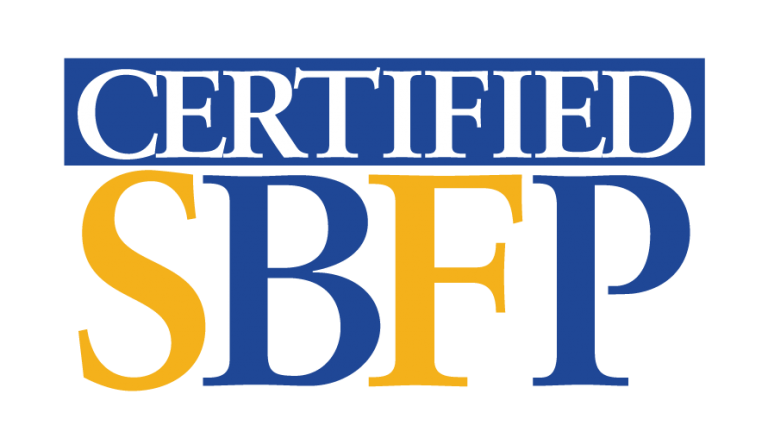 Washington, D.C.— The Small Business Finance Association (SFBA) today launched a new certification for the small business finance industry. The Certified Small Business Finance Professional (CSBFP) program will bring education and accountability to all providers of alternative finance products. The certification will require applicants complete a four-section training course, abide by industry best practices, provide industry references, pass an exam and be subject to a background check. The certification will also require applicants to complete continuing education classes every two years.
Washington, D.C.— The Small Business Finance Association (SFBA) today launched a new certification for the small business finance industry. The Certified Small Business Finance Professional (CSBFP) program will bring education and accountability to all providers of alternative finance products. The certification will require applicants complete a four-section training course, abide by industry best practices, provide industry references, pass an exam and be subject to a background check. The certification will also require applicants to complete continuing education classes every two years.
“This certification is a message to our customers that we want them to feel confident they are being offered fair capital options from responsible lenders,” said Steve Denis, the executive director of SBFA. “There are countless companies offering a proliferation of products and services and we believe it’s business owners deserve the comfort of knowing they are working with a certified professional.”
The certification will require applicants to complete a course centered on understanding products, laws governing the industry and compliance. The certification exam will focus on testing applicants’ ability to understand key concepts and best practices. Those who become certified will be allowed to use CSBFP branding in their marketing materials, have access to key regulatory updates and gain entry to a networking platform that will allow them to connect to industry and legal professionals.
“Our goal is to offer a fully immersive experience for certified professionals. We don’t simply want to give them a stamp but provide them a way to connect, learn and grow beyond the initial education process. It’s in the interest of our industry to offer best-in-class professionals, but more importantly, it’s in the interest of better serving our small business customers,” said Denis.
The certification is open to anyone working in the alternative small business finance industry. Interested professionals can learn more at www.csbfp.org or www.sbfassociation.org.
Contact:
Steve Denis 202.213.9506
sdenis@sbfassociation.org
New York’s Fourth Judicial Department Affirms Its Settled Law That MCA Agreements Are Not Usurious
November 16, 2021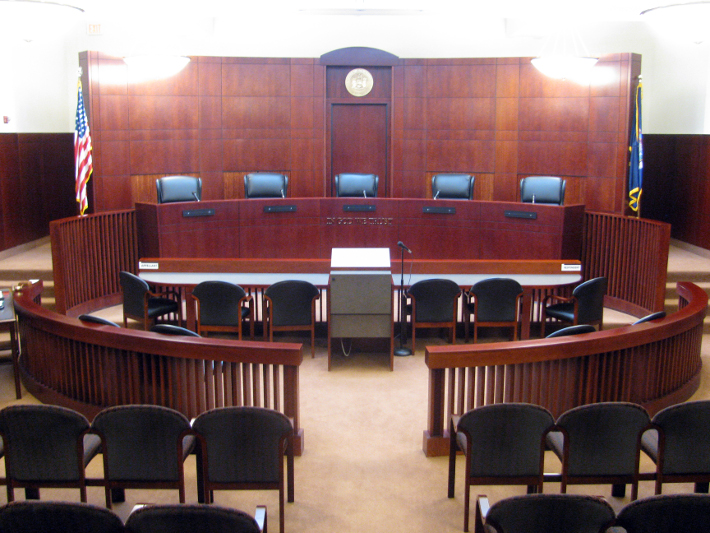 New York’s Appellate Division for the Fourth Judicial Department in the Supreme Court of New York issued a landmark decision for the merchant cash advance industry on November 12th.
New York’s Appellate Division for the Fourth Judicial Department in the Supreme Court of New York issued a landmark decision for the merchant cash advance industry on November 12th.
By affirming the original decision issued in Kennard Law P.C. DBA Kennard Law and Alfonso Kennard v High Speed Capital LLC (Index No: 805626/2020), the Appellate Division agreed that among other things that it is settled law in New York that the underlying purchase and sale of future receivables agreement at issue in the case is not a usurious loan.
On June 10, 2020, plaintiffs filed their lawsuit against the defendant, asking the Court to vacate a confession of judgment on the basis that the defendant’s underlying contract dated back on August 24, 2017 was really an unenforceable criminally usurious loan.
The defendant moved to dismiss and the judge granted the motion, holding that:
1. Plaintiffs’ claim of usury is barred by the one-year statute of limitations applicable to usury based claims.
2. Plaintiffs have failed to plead a cognizable cause of action upon which to seek relief.
3. Plaintiffs have no recoverable damages.
4. Plaintiffs’ claims are barred by documentary evidence and settled law in New York holding that the parties’ underlying agreement was not a usurious loan.
Plaintiffs appealed, hoping that the Fourth Department would be persuaded by their arguments that the agreement was usurious. It wasn’t. Instead the Appellate Division unmistakably and unanimously affirmed the original judgment.
The decision demonstrates that there is consensus across judicial departments. Kennard in the Fourth Department (Western New York) is similar to Champion Auto Sales, LLC et al. v Pearl Beta Funding, LLC in the First Department (Manhattan and the Bronx) circa 2018.
Coincidentally, the attorney representing the losing parties, Amos Weinberg, is the same in both landmark cases.
The attorney representing High Speed Capital was Christopher Murray of Stein Adler Dabah & Zelkowitz, LLP.
Yes Lender Becomes Fintegra, Brings on Former Federal Reserve Vice Chair
November 15, 2021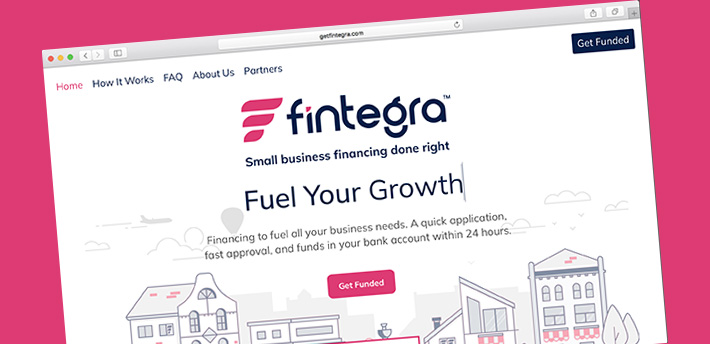 Yes Lender is now Fintegra. Along with the name change, the company is bringing on Roger Ferguson, former Vice Chair of the Federal Reserve (1997-2006) in an advisory role. Ferguson is also an investor in Fintegra.
Yes Lender is now Fintegra. Along with the name change, the company is bringing on Roger Ferguson, former Vice Chair of the Federal Reserve (1997-2006) in an advisory role. Ferguson is also an investor in Fintegra.
“Our new name combines ‘fintech’ with ‘integrity’” said Glenn Forman, CEO at Fintegra. [The name] serves as a daily reminder to our customers and colleagues of our mission and values, which we take very seriously.”
The company’s goal is seemingly to write a lot of deals, and get them funded as fast as possible through a fintech application process. According to a press release, the online application can get merchants their funds within 24 hours of their application being submitted.
When touching upon Fintegra’s goals with the rebranding, Forman spoke on a good work environment along with customer-centric business decisions. “We’re committed to putting capital in the hands of entrepreneurs so they can grow their businesses and improve the lives of their customers, suppliers and employees, and we’ll continue to do so in a highly ethical and empathetic way.”
When speaking about the partnership with Ferguson, Forman believes this unprecedented addition will bring equally unprecedented opportunities to this company.
“We’re incredibly fortunate to be able to tap Roger’s wisdom and experience to accelerate Fintegra’s growth. His track record of success and impeccable ethics are perfectly aligned with our brand.”
Forman and Ferguson are looking to rekindle an old working relationship to help Fintegra take off. “While it’s been a few years since we worked together at McKinsey & Company, it feels great to be joining forces again to take Fintegra to new heights.”





























